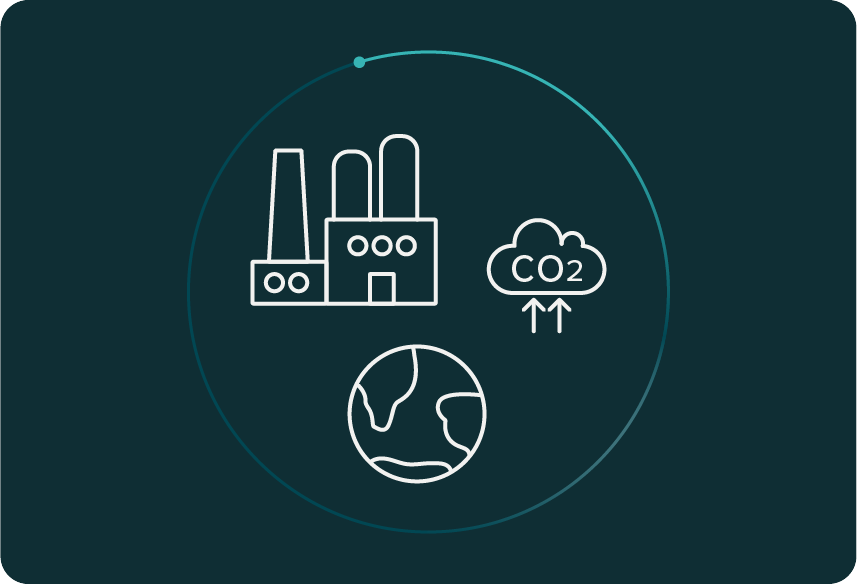
What is ESG law?
The term ESG first appeared in a 2004 report by the United Nations titled "Who Cares Wins". This publication was a collaborative effort between the UN Global Compact and leading financial institutions worldwide. The idea was to introduce environmental, social, and governance factors to operations and investment decisions

ESG Law: Beginning and Components
The purpose was to demonstrate that considering these factors isn’t just ethical but also profitable.
The report argued that a company’s ESG performance could directly affect long-term risk and return. Thus, the groundwork for sustainable and responsible investing was laid.
Since then, ESG has evolved from a set of voluntary guidelines to a critical framework for assessing corporate sustainability and risk.

The Rise of ESG Laws Around the World
While ESG guidelines have been around for years, formal ESG laws are now established around the world. Notable examples are the EU’s Corporate Sustainability Reporting Directive (CSRD), the Corporate Sustainability Due Diligence Directive (CSDDD) and Germany's Supply Chain Due Diligence Act (LkSG).
They all define clear requirements for companies to disclose their ESG practices. These regulations are all about driving transparency and making sure companies are accountable for their environmental, social, and governance impact.

Standardized ESG Disclosures with the Corporate Sustainability Reporting Directive (CSRD)
The CSRD plays a critical role in the ESG landscape by setting a consistent framework for sustainability disclosures across industries. Using the European Sustainability Reporting Standards (ESRS), companies must share clear details on their environmental, social, and governance performance. This allows stakeholders to easily compare and analyze their sustainability efforts.
CSRD’s "double materiality" approach requires companies to report on both sides of ESG: How ESG factors influence their finances—and how their operations affect society and the environment. This two-way view promotes transparency and shows companies’ impact on society.
Under the CSRD, ESG reports must be digital and meet European Single Electronic Format (ESEF) standards. Plus, external audits help ensure that the data is accurate and trustworthy for stakeholders. The aim of this structure is to reduce greenwashing.

Pushing Corporate Accountability through the Corporate Sustainability Due Diligence Directive (CSDDD)
The CSDDD focuses on environmental and human rights impacts of global value chains. The directive requires large companies operating in the EU to identify, prevent, and address harmful consequences on people and the planet which are linked to their business.
According to this directive, companies must conduct thorough due diligence across their value chains. With the “value chain” perspective, companies will have to evaluate potential human rights and environmental impacts through a wider spectrum: It includes not only suppliers and partners, but also any other entity directly linked to the company’s operations, products, or services (e.g., indirect suppliers, contractors, distributors). If companies fail to meet these obligations, they could face serious fines and legal action. For businesses, it’s a strong signal that ESG is no longer just a value-add—it’s becoming a non-negotiable part of doing business in Europe.
The CSDDD ultimately aims to make sustainability an essential part of corporate strategy. For consumers and investors, it also offers a clearer view of how committed companies are to real, measurable ESG progress.

Elevating Germany's ESG Standards with the Supply Chain Due Diligence Act (LkSG)
Germany’s LkSG (stands for "Lieferkettensorgfaltspflichtengesetz") enforces corporate responsibility across supply chains. Effective since January 2023, the LkSG requires companies with 3,000 or more employees to identify and address human rights and environmental risks, from raw materials to finished products.
This law aligns closely with the social and environmental pillars of ESG, as it prioritizes fair labor practices, safe working conditions, and environmental responsibility throughout the supply chain. Companies must perform due diligence, track compliance, and issue annual reports on their risk management efforts. Non-compliance can lead to significant fines and exclusion from public contracts. The LkSG is part of a broader movement: With the entry into force of the Corporate Sustainability Due Diligence Directive (CSDDD), the LkSG will ultimately be adjusted to align with the Directive’s requirements.

The Future of ESG Legislation
ESG compliance is a chance for companies to build trust with consumers, investors, and regulators who care about sustainable and ethical practices.
Failing to comply with ESG regulations can mean more than just fines. It can damage an organization’s reputation and open it up to legal risks.
Make sure you lay the groundwork for compliance with ESG regulations that apply to your business. Speak to our experts today to gage your next steps.
















